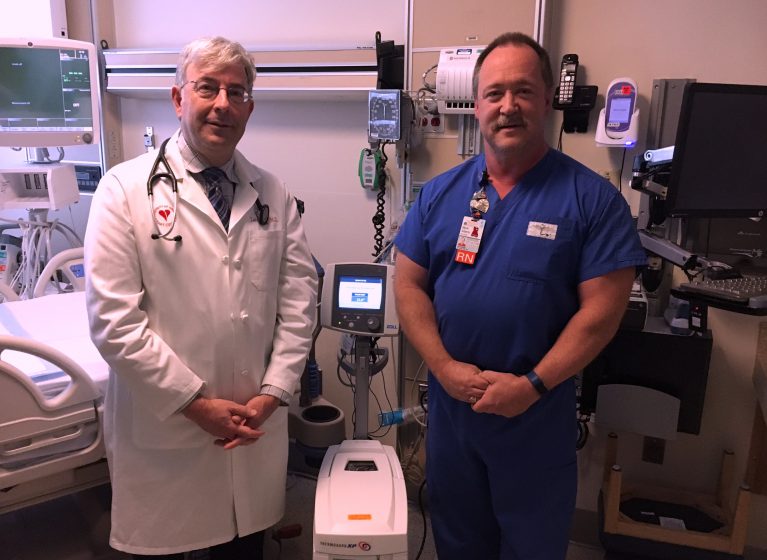When we treat patients who suffer cardiac arrest — that is, their hearts have stopped — we often give them what is called “targeted temperature management.” Basically, we run a tube into their bodies that acts much like the cooling coil of an air conditioner. It brings their temperature down much, much lower than it ever would be normally — typically to somewhere between 91.4 and 93.2 degrees. This improves their chances of survival and preserves their brain function, and it can literally be the difference between life and death. We’re very lucky to be able to offer this catheter approach, because not all hospitals can. (You can see the machine that does this in the picture above — it’s the droid-like thing between Dr. Lawrence W. Gimple (left) and Mark Adams, nurse manager of our Coronary Care Unit.)
The benefits of targeted temperature management depend on many factors, including how quickly the patient received CPR. For families, this means there is the awful period of uncertainty as they await word on their loved one’s prognosis. Now, Dr. Gimple and his colleagues have developed a new and faster way to predict how well patients will fare. They’ve created a tool called C-GRApH that doctors can use to assess the patient’s chances of recovering with meaningful neurological function. All the doctors need is some basic information that is available after the patient is admitted to the hospital, such as the patient’s age, initial heart rhythm and whether the patient has coronary artery disease. From this, they can calculate a score from 0 to 5. The lower the score, the better the chances the the patient will recover with substantial cognitive function.
We always want the news to be good, of course. But even if it’s not, that can be comforting to a family making difficult care decisions, especially when the patient has a living will. And it’s our way of getting families answers faster.
